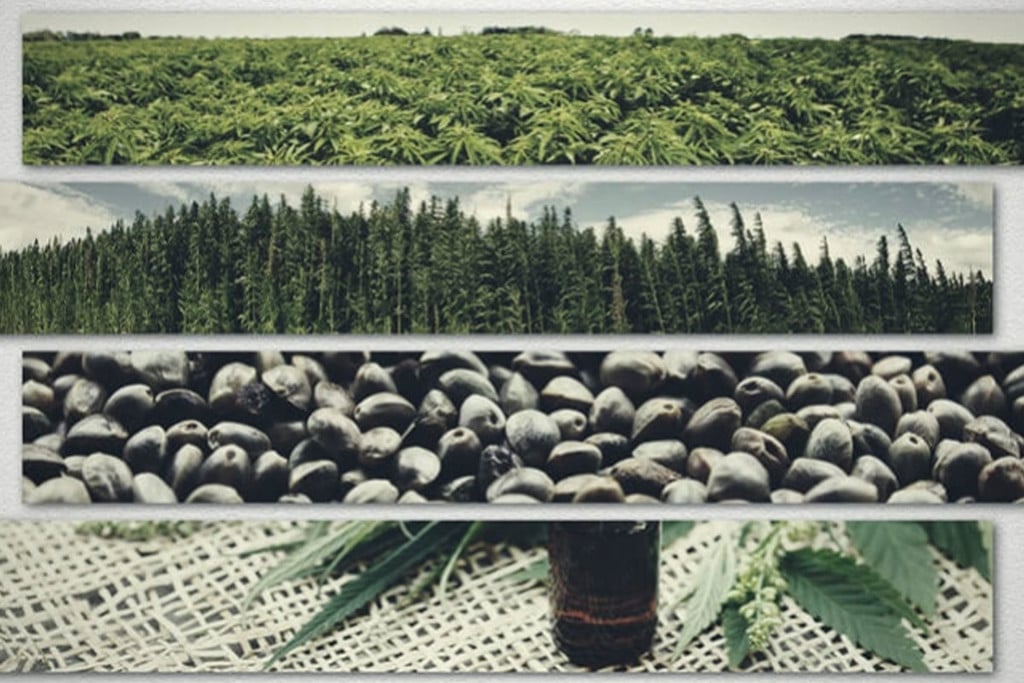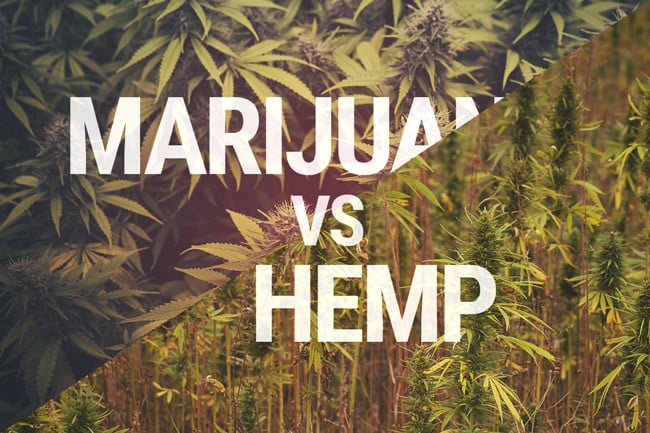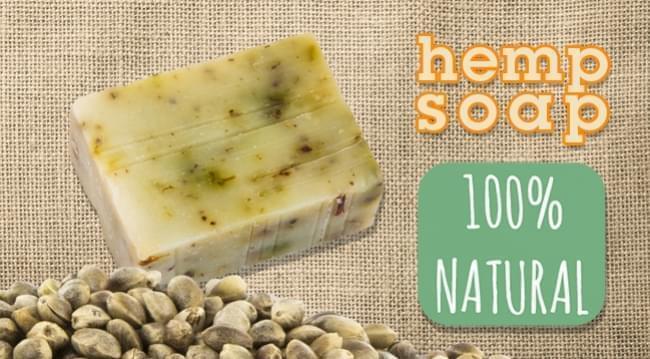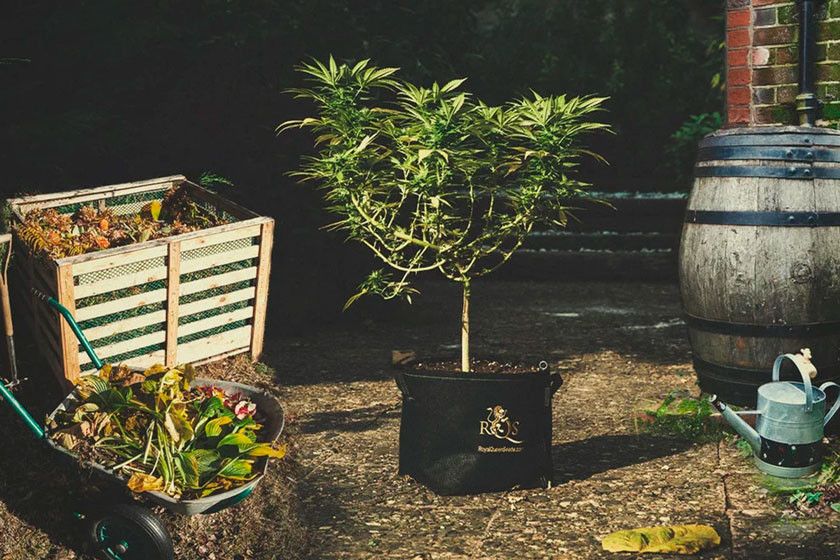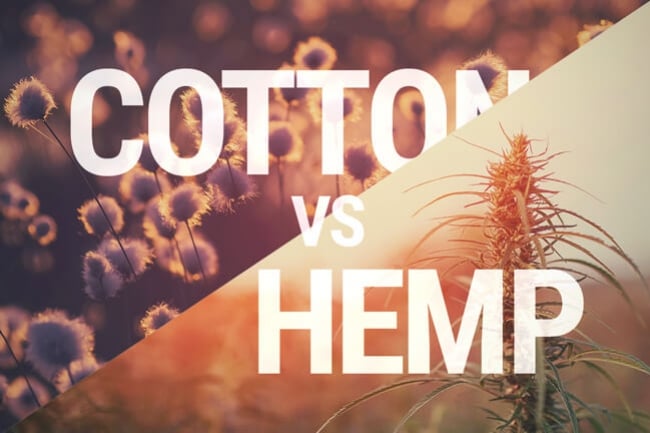.
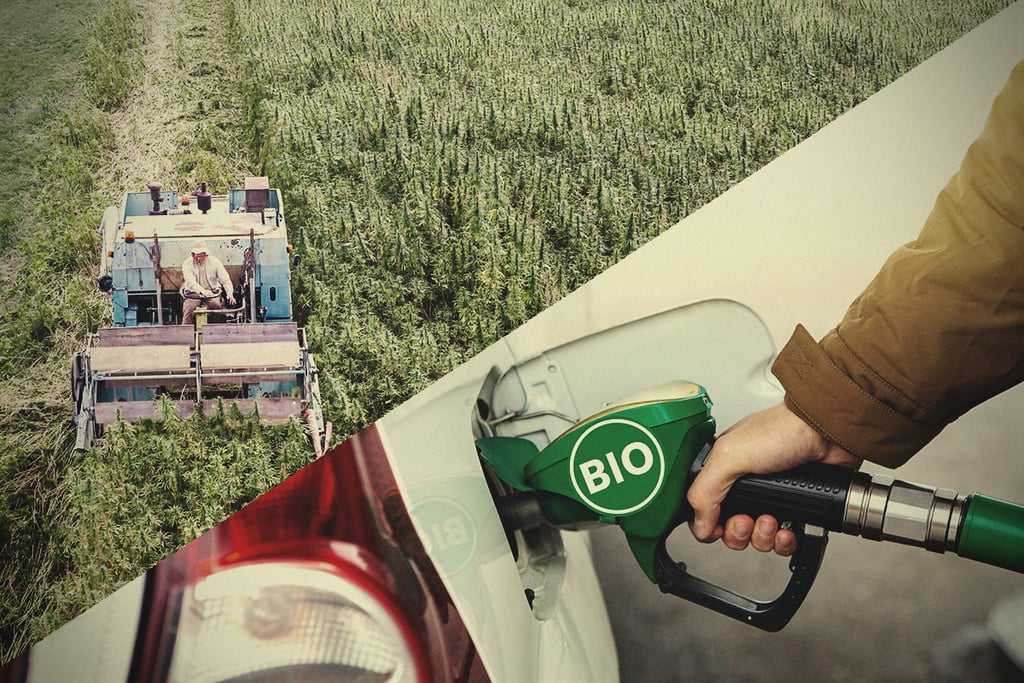
Hemp Biofuel: Is This the Answer to Environmental Crisis?
Is hemp biofuel the best solution to the world's environmental problems? Or is it all hype? This article should provide some answers to those questions.
Contents:
For many years now, global warming and climate change have posed a serious threat to the health of our planet. In an attempt to create more sustainable fuel sources, biofuel was developed.
Unlike the petrol we’re all familiar with, biofuel is produced from living organisms. Apart from plant materials, other substances, like animal fat and vegetable oil, are used. They’re usually mixed into regular fuel to create a product that isn’t as detrimental to our environment.
As the world begins its shift to biofuel, experts are now looking at possibly using hemp as a primary resource. It is, after all, a crop that’s not only very easy to grow, but holds multiple purposes as well.
But what is stopping humanity from jumping in? What are the obstacles? Are there any disadvantages to its advantages? This article should answer all of these questions while also providing further enlightenment about biofuel.
What Exactly Are Biofuels?
As mentioned, biofuel is fuel-derived biomass, aka plant or animal material.
Biofuels are classified into three main types: first, second, and third generation. First-generation biofuels are made from sugar and starches. They are processed through distillation and fermentation to produce (primarily) ethanol for use as an additive to gasoline.
Second-generation biofuels are produced from wood, organic waste, and biomass crops. These materials undergo pretreatment, and will also be turned into ethanol as a final product.
Third-generation biofuels are derived from algae oil. Upon extraction, the oil is then converted into biodiesel.
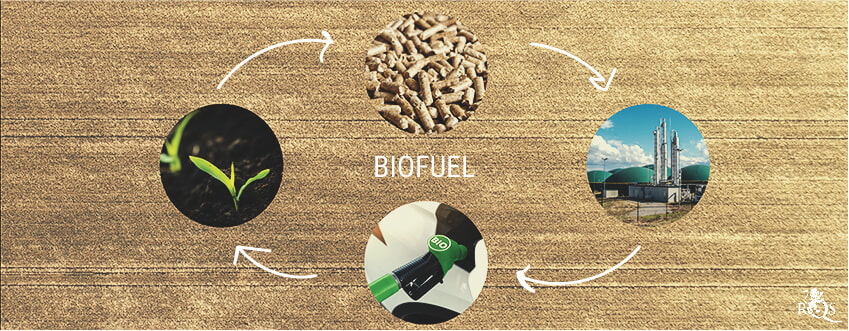
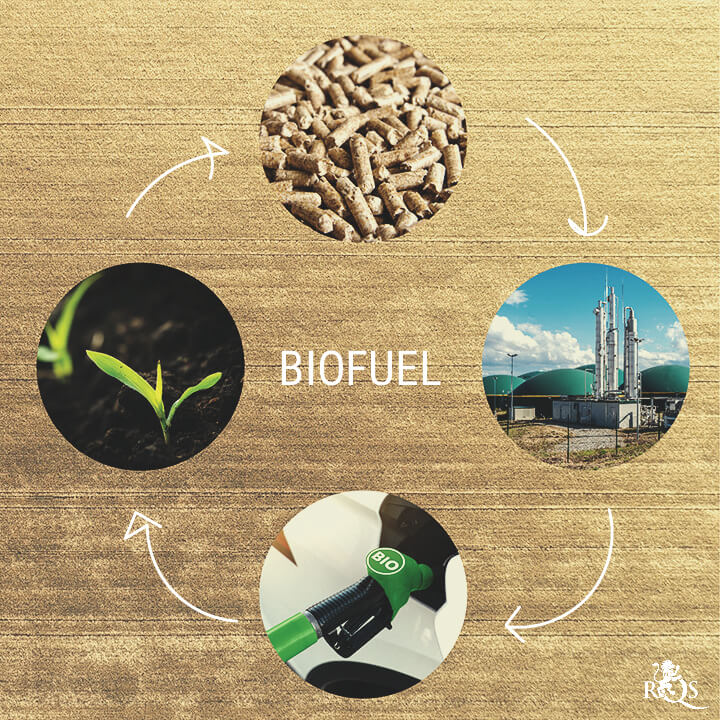
Types of Biofuel
Biofuels are classified into two primary types: ethanol and biodiesel. Both are known to be a more viable option from an environmental standpoint.
-
Ethanol
If this one rings a bell to you, that’s because ethanol is simply pure alcohol. It’s the same compound in your favorite adult beverage that causes you to make bad life decisions in one night.
Primarily made from sugarcane and corn, ethanol has been deemed a viable gasoline additive. The most common ethanol-fuel mixture is E10, which is 90% gasoline and 10% ethanol. However, some vehicles are powered by what is known as E85, which contains a greater ethanol percentage, between 51% and 83%.
The biggest upside to using ethanol is that it is renewable. The second would be its lower greenhouse gas emissions, which are 15% less than regular fuel.
The downside, however, is that it also hurts the environment. For one, farming ethanol crops can cause soil erosion. At the same time, most of the methods used for farming involve toxic chemicals that can easily pollute water supplies.

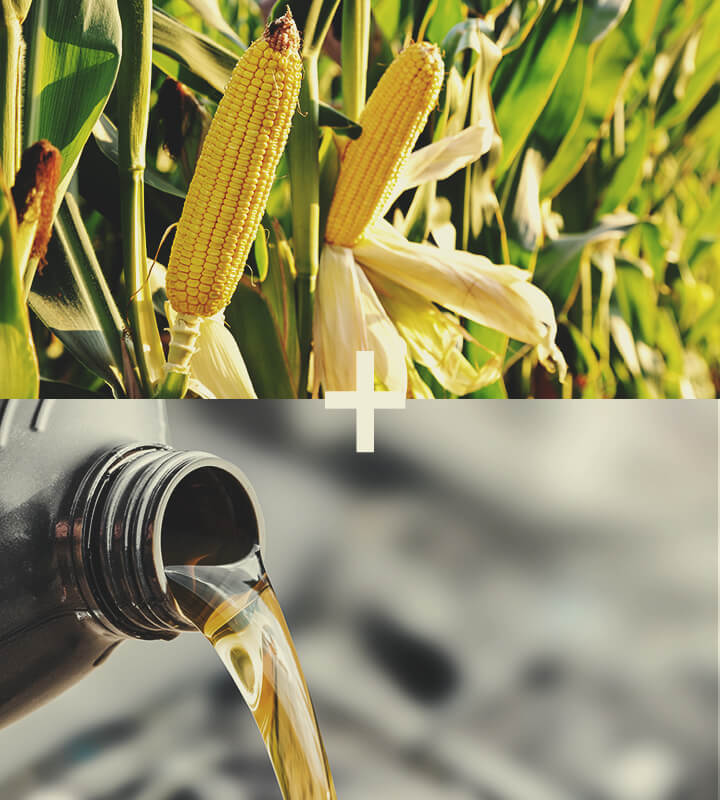
-
Biodiesel
As you may pick up from the name itself, biodiesel is similar to its petrol-based counterpart. The only difference is that it is made from either animal fat or vegetable oil. In fact, some companies use locally sourced restaurant cooking oil[1] and grease to make biodiesel.
As we mentioned earlier, algae can also be used to produce biodiesel. But recently, scientists are also looking at the option of genetically engineered crops[2] for biodiesel production.
The most common form of biodiesel is known as B20. Composed of 80% petroleum and 20% biodiesel, it is said to reduce carbon emissions by 20%.
Just like ethanol, the great thing about biodiesel is that it is renewable. And because you’re using recycled ingredients, biodiesel companies actually minimise waste.
The downside, however, is that because biodiesel production relies on food crops, it can cause an increase in food costs. There’s also the potential increase in feedstocks for algae and bacteria to consider.
And while it is more eco-friendly, it also does some harm to the environment. Biodiesel contains 10% more nitrous oxide, which causes the formation of smog and acid rain.


How Can We Use Biofuel?
The most obvious answer would be for transportation and as a more sustainable fuel alternative. On a smaller scale, biodiesel, for example, can be used to replace the petrol-based diesel in trucks. It’s a good start to reducing carbon emissions.
| Energy Generation | But there are other uses for biofuel, like energy generation. We can start doing away with traditional diesel generators and replace them with biodiesel-powered machines. |
| Heat Production | Bioheat is a go-to option for home heating purposes. Instead of fossil fuel, we can go with a renewable energy source like biodiesel. |
| Fossil Fuel Replacement | Speaking of fossil fuels, there will come a point in time when its supply runs out. Biofuels are there to potentially become a more stable and economic method of producing and providing energy. |
| Energy Generation |
| But there are other uses for biofuel, like energy generation. We can start doing away with traditional diesel generators and replace them with biodiesel-powered machines. |
| Heat Production |
| Bioheat is a go-to option for home heating purposes. Instead of fossil fuel, we can go with a renewable energy source like biodiesel. |
| Fossil Fuel Replacement |
| Speaking of fossil fuels, there will come a point in time when its supply runs out. Biofuels are there to potentially become a more stable and economic method of producing and providing energy. |
The Economic Advantages of Biofuel
First, let’s take a deeper look at the economics of biofuel, as explained by the US Environmental Protection Agency[3] (EPA). Because biofuel is produced from renewable material, the EPA sees its great potential to reduce the “undesirable aspects of fossil fuel”.
The most obvious upside of switching to biofuel is its environmental impact. Since it is made from organic material, it takes up carbon dioxide. When combusted in an engine, the carbon dioxide is simply released back into the atmosphere. This recycled pattern does not cause a buildup of CO₂, which therefore lessens contributions to global warming.
Another perceived benefit of biofuel is an increase in farm income. Since their products will be in high demand, farmers get to earn more money.
And because biofuel can be locally produced, that would mean fewer disruptions to the fuel supply chain. It also causes a drop in the demand for fuel, which leads to more affordable prices for consumers to enjoy.
The Biofuel Controversy
However, biofuel does have its fair share of controversies. A 2016 study[4] suggests that biofuels may potentially cause an increase in carbon dioxide emissions instead of the previous claim of reducing them. It also discovered some greenhouse gas emissions from the processing of both feedstock and the biofuel itself.
That’s not all. According to other findings, biofuels plausibly emit roughly the same amount of carbon dioxide as regular petroleum. It is also claimed that the cultivation of corn and soybeans for biofuel production has potentially caused the displacement of other crops.
Biofuels do have their upsides and downsides, but how does hemp fall into all of this?
Is Hemp the Most Viable Biofuel?
Since we’re on the topic of sustainable, renewable resources, why not take it a step further? This is where hemp, and the seemingly huge potential of its biofuel variation, comes in.
The auto industry is no stranger to hemp use. Big car brands like BMW, Ford, Mercedes, and Volkswagen have begun using the crop for interior components like dashboards and door panels.
In terms of powering the vehicle itself, hemp biofuel has been considered a viable option. But is it the most viable? Let’s take a look at how it fares in terms of the two main biofuel types.
| Hemp Ethanol | Using hemp for ethanol production curbs the potential problem of using too many food sources like corn and wheat. Ultimately, this makes food production more efficient while also minimising its disruption. At the same time, hemp is much easier to grow compared to other food crops. They’re like weeds that can thrive in lower-quality conditions. |
| Hemp Biodiesel | Hemp biodiesel holds several advantages over its counterparts. As a 2015 study[5] suggests, it is “much cleaner” compared to soybean and rapeseed biofuels. Hemp biodiesel also has a higher flash point, aka the temperature at which it ignites. Because of this, it is much easier to store, transport, and handle overall. |
| Hemp Ethanol |
| Using hemp for ethanol production curbs the potential problem of using too many food sources like corn and wheat. Ultimately, this makes food production more efficient while also minimising its disruption. At the same time, hemp is much easier to grow compared to other food crops. They’re like weeds that can thrive in lower-quality conditions. |
| Hemp Biodiesel |
| Hemp biodiesel holds several advantages over its counterparts. As a 2015 study[5] suggests, it is “much cleaner” compared to soybean and rapeseed biofuels. Hemp biodiesel also has a higher flash point, aka the temperature at which it ignites. Because of this, it is much easier to store, transport, and handle overall. |
The Advantages of Hemp Biofuel
Apart from those we mentioned, hemp biofuel use has many other advantages. The biggest is its ability to grow on what some refer to as “marginal land”. This is basically a piece of land with subpar soil quality that’s likely been polluted from previous industrial projects.
Simply put, hemp is very low maintenance, and expected to thrive even in unfavorable soil conditions.
But there are other upsides if you choose to use hemp for biofuel.
-
Minimal Fertiliser Requirement
Most crops require a generous amount of soil fertiliser to grow well. The problem is that most fertilisers contain pollutants that end up getting washed into the water. In turn, they end up disrupting the marine ecosystem by killing fish and contaminating water supplies.
Hemp plants, however, do not need high soil fertility, which means they can do without these chemicals. And with just a small amount of nutrients, you can expect abundant yields.
-
Nutrients Are Returned to the Soil
Not only does hemp require minimal fertiliser, but it will also return nutrients to the soil. In fact, around 70% goes back down both during and after its growing cycle.
-
Low Water Demand
Similarly, you don’t need too much water to grow hemp plants. All you need is 12 to 15 inches[6] (1 to 1.3 feet) to see large yields.
Corn plants, however, need around 22 inches[7] (21.8 inches) of water to grow—almost twice as much.
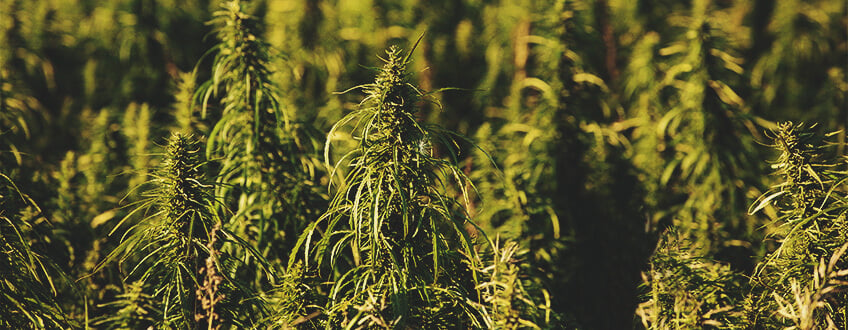
-
All of the Plant Can Be Used
This is one of the biggest perceived advantages of using hemp for biofuel. Every part of the plant can potentially be utilised.
After you’ve extracted all the oil from the seed, you can use the leftover hull and seed matter for animal feed. The remaining fibres can also be used to make paper and other building materials.
-
Efficient Solid Fuel Source
Further research shows how hemp is a much more efficient solid fuel source compared to its counterparts. As a 2011 study[8] suggests, hemp’s adjusted biomass energy yield was 120% higher than wheat straw.
-
It Grows Faster and More Abundantly
Not only can hemp plants thrive in almost any given soil conditions, but they also grow much faster. All you need is a maximum of six months before harvest comes. It can grow up to 15 feet (4.5m) in height and yield an average of 700 pounds (~11216.9 oz) of grain per acre.
The Downsides of Hemp as a Biofuel
While there are advantages to using hemp for biofuel, the drawbacks are also worth noting.
-
Economic Disadvantages
One disadvantage of hemp biofuel is the cost. Because the production requires the extra step of pre-heating, it turns out to be more expensive compared to corn and sugarcane.
-
Potential Farming and Distribution Difficulties
A huge benefit of growing hemp is that it can thrive even in infertile soil, leaving the fertile land for cultivating food. The downside here is that infertile land is difficult to farm. As a result, it would be more difficult to distribute for mass processing. It could also lead to a potential rise in costs, and even carbon dioxide emissions.
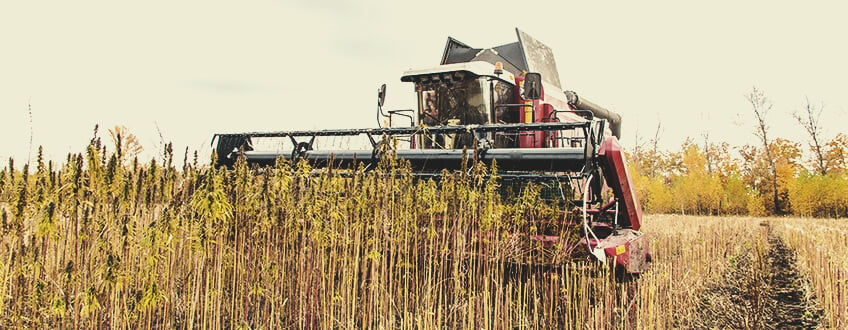
-
Possible Deforestation
The mass production of hemp biofuel would mean more hemp plants would need to be harvested. But that high demand could lead to potential deforestation if proper regulations aren’t put into place.
-
Less Efficient Than Petrol
Biodiesel in itself is less efficient than petrol, regardless of its composition. According to a Penn State University study[9], biodiesel is at 117,000 BTUs compared to petrol’s 131,000 BTUs. Lower BTUs mean less power and potentially lower fuel economy.
-
A Debate Between Food and Fuel
Even if hemp can grow in marginal land, it would still be better off thriving in fertile soil. That could then spark a long discussion about whether food or hemp should be prioritised, which could be problematic down the line.
Do We Need Biofuel as a Society?
After years of carbon emissions, Mother Nature has taken a beating. With the promise of biofuel as a viable option for sustainable energy, we could use it as a society.
But considering the downsides, proper regulations need to be implemented before this goes into full effect, globally.
- Biodiesel Production from Locally Sourced Restaurant Waste Cooking Oil and Grease https://pubs.acs.org
- Genetically engineered crops for biofuel production: regulatory perspectives - PubMed https://pubmed.ncbi.nlm.nih.gov
- Economics of Biofuels https://www.epa.gov
- Carbon balance effects of U.S. biofuel production and use | SpringerLink https://link.springer.com
- Advantages and Challenges of Hemp Biodiesel Production https://www.diva-portal.org
- Industrial Hemp https://www.votehemp.com
- Forage and Food Crops http://extension.psu.edu
- Biomass and energy yield of industrial hemp grown for biogas and solid fuel - ScienceDirect http://www.sciencedirect.com
- Background for Economic Evaluation of Biofuel Use | EGEE 439: Alternative Fuels from Biomass Sources https://www.e-education.psu.edu


























